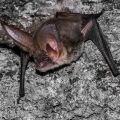New research shows spelling continues to be a challenge
As part of ongoing research into creating dictionaries for children, a recent analysis by Oxford University Press (OUP) has uncovered several insights into the way that young people tackle spelling.
The analysis reveals that children still need spelling support in spite of spellcheckers. The findings show that common everyday words such as can't, doesn't, and excited still present many children with a challenge.
However, when children use less common words in their writing, such as pterodactyl and archaeologist, they spell them correctly nearly 100% of the time.
Contrary to the popularly held opinion that there is an increasing use of 'txt spk', it is evident that children understand how to spell words correctly in full and will only use 'txt spk' in their stories as part of the narrative context.
Experts believe slip-ups over apparently simple everyday words occur because children will turn to a dictionary to look up unfamiliar and so-called 'long' words, but do not do the same for regularly heard, or used, words and phrases.
Vineeta Gupta, Head of Children's Dictionaries at OUP, commented: 'Children are keen and motivated to spell well, and it is pleasing to know that they probably look words up that are technical or more complex. At the same time, children are still struggling with simple and everyday words.
'Spellcheckers can be useful but may not provide all the support a child needs to distinguish confusables such as their/there and cloths/clothes. These findings are fascinating and give us an opportunity to target the areas children need more support in.'
The OUP research clearly demonstrates that British children still love reading. Evidence of this is found in their magpie approach to words famous writers have previously invented, such as JK Rowling's basilisk and hippogriff, JRR Tolkien's orcs, and Lewis Carroll's bandersnatch. The archaic spelling of words, such as daemon (popularised by Philip Pullman in the His Dark Materials trilogy) and faerie, rare since the 17th century, appears quite frequently thanks to books for children such as Faerie Heart and Faerie Wars.
Lexicographer and English teacher Jane Bradbury, who assisted with the research, says the research holds interesting lessons for teachers and educationalists. 'The majority of errors are occurring in commonly used words with spellings that are difficult to guess and, in English, there are a lot of words with unguessable spellings! Many spellings are difficult to guess because they contain letters or syllables which are silent – we don’t hear them when the words are said out loud, for example the e in something, or the er in the middle of different. This confirms that the sort of spellings teachers are focusing on, such as adding -ed or -ly endings, or tricky vowel patterns, are exactly what children need to be taught. Children do genuinely love words and even the spelling rules. It can be like cracking an exciting code, if taught correctly.'
 New study on Amazonia's fire crises urges action ahead of the next burning season
New study on Amazonia's fire crises urges action ahead of the next burning season
 New heart disease calculator could save lives by identifying high-risk patients missed by current tools
New heart disease calculator could save lives by identifying high-risk patients missed by current tools
 Modern Slavery and Human Rights Policy and Evidence Centre moves to Oxford University after receiving continuation funding
Modern Slavery and Human Rights Policy and Evidence Centre moves to Oxford University after receiving continuation funding
 Study shows that island bats are valuable allies for farmers
Study shows that island bats are valuable allies for farmers
 Study reveals how humanity could unite to address global challenges
Study reveals how humanity could unite to address global challenges